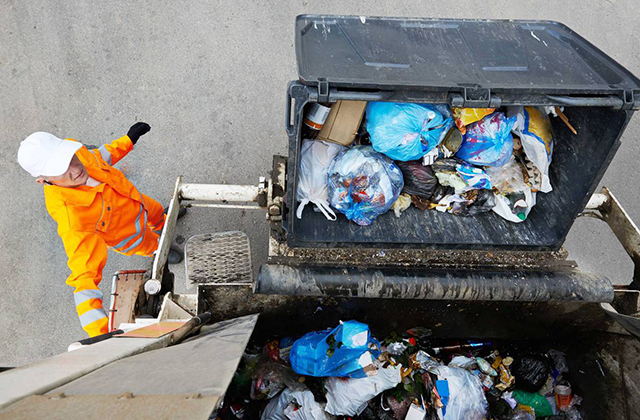Improper disposal of hazardous waste isn’t only dangerous to the environment and employees, it is also illegal and could result in heavy fines.
In order to mitigate the risks posed by hazardous wastes, business owners need to understand what constitutes hazardous waste and how to operate in an industry filled with Environmental Protection Agency (EPA) regulations, state laws and municipal laws. Sometimes these laws can seem overbearing and even conflicting, but understanding them is key to making sure that contractors avoid unnecessary fines due to improper disposal.
Businesses that work with or around hazardous waste on a regular basis typically need a Resource Conservation and Recovery Act (RCRA) permit in order to operate. RCRA, established in 1976, governs most of the work completed on sites where businesses treat, store or dispose of hazardous wastes. RCRA permits can last for up to 10 years, and new applications must be completed six months before a current permit expires. Businesses can apply for interim status to operate with hazardous waste while in the process of applying for a full-time permit. The EPA has worked to allow businesses to complete the paperwork electronically through an e-permitting process.
Several forms of hazardous materials typically are encountered in construction and industrial environments. These include, but are not limited to, the following:
- thermostats containing mercury;
- lead paint or leaded pipes;
- fluorescent lamps;
- PCB caulking/ballasts;
- certain types of glues and roofing tars;
- tilt switches;
- pressure gauges;
- displacement or plunger relays;
- pressure gauges;
- flow meters;
- float switches;
- drain traps (especially in older buildings);
- mercury or lead-based batteries;
- aerosol cans; and
- asbestos.
Relatively common hazardous chemicals include:
- ammonia;
- fluorine;
- nitric acid; and
- sulfur dioxide.
The EPA keeps an exhaustive catalog of all hazardous chemicals. Several types of hazardous waste projects require permits before work can begin. Common construction and industrial projects that must be permitted include:
- discharging of dredged material;
- stormwater runoff;
- cleaning spilled hazardous material; and
- working on insulation with asbestos.
If hazardous materials/chemicals are encountered unexpectedly during a project, work should stop immediately. Contact local hazardous waste authorities and the EPA as soon as possible. Failing to do so could be construed as guilt for the hazardous waste discharge, spill or placement under the Comprehensive Environmental Response Compensation and Liability Act (CERCLA) and RCRA. If found liable for violating hazardous waste laws, a business could end up paying the full cost for the proper cleanup, transport and disposal. The costs for such an exhaustive project could run into the tens or even hundreds of thousands of dollars.
When permitted and working on a hazardous waste project, it is imperative to ensure that employees have the correct equipment and protective clothing. This often means proper ventilation and undamaged, labeled storage containers for the hazardous materials/chemicals that are stored out of direct sunlight in a well-ventilated, fire-resistant area. Each state and municipality has its own specific laws on working with hazardous wastes that need to be followed.
In order to mitigate human, environmental and financial risk when working with hazardous waste, contractors should adhere to the following steps.
- Follow EPA, state and municipality law, and ask questions when necessary.
- Protect all employees with the proper equipment and protective clothing.
- Keep diligent records and track of all correspondence with relevant companies and regulatory authorities.
- Stay abreast of hazardous waste regulatory changes on all government levels.
- Investigate each new site for past hazardous waste use and all potential hazardous waste risks.
- Have a plan for hazardous waste discovery and for proper disposal.

